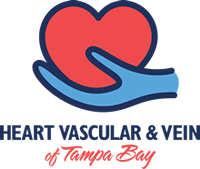Glossary of Terms – Vein, Diagnosis and Treatment Terms
Find answers to your questions about vein disease and treatment options.
How quickly can I resume normal activity?
Patients treated with the ClosureFast procedure may resume normal activities more quickly than patients who undergo surgical vein stripping or laser ablation. With the ClosureFast procedure, the average patient typically resumes normal activities within a few days. For a few weeks following the treatment, the doctor may recommend a regular walking regimen and suggest you refrain from very strenuous activities (heavy lifting, for example) or prolonged periods of standing.
How soon after treatment will my symptoms improve?
Most patients report relief of symptoms after two days with a noticeable improvement in one to two weeks.
Is there any scarring, bruising, or swelling after the procedure?
Most patients report limited to no scarring, bruising, or swelling following the ClosureFast procedure using the ClosureFast catheter.
How is the ClosureFast procedure different from endovenous laser?
Although the ClosureFast procedure and 980 nm endovenous laser ablation are both minimally invasive procedures, a comparative, multi-center study showed that the ClosureFast procedure was associated with statistically significant lower rates of pain, bruising, and complications. Patients undergoing the ClosureFast procedure also reported improvements in quality of life measures up to four times faster than patients treated with 980 nm endovenous laser ablation.
How is the ClosureFast procedure different from vein stripping?
During vein stripping, incisions are made in the groin and calf, and a tool is threaded through the diseased vein to pull the vein out of the leg. With the ClosureFast procedure, only one small incision is made at the insertion site and the vein is then treated and left in place. This minimally invasive approach reduces the likelihood of pain and bruising associated with vein stripping surgery.
Is the ClosureFast procedure covered by insurance?
Many insurance companies pay for the ClosureFast procedure in part or in full. The ClosureFast procedure has coverage policies with major health insurers. Please discuss your coverage with your insurance provider or our office.
What does it treat?
The VenaSeal closure system treats symptomatic vein disease in the lower extremity superficial truncal veins, often the underlying cause of painful varicose veins.
What can I expect of the VenaSeal procedure?
Before the Procedure:
You will have an ultrasound imaging exam of the leg that is to be treated. This exam is important for assessing the diseased superficial vein and planning the procedure.
During the Procedure:
Your doctor can discuss the procedure with you. A brief summary of what to expect is below:
- You may feel some minor pain or stinging with a needle stick to numb the site where the doctor will access your vein.
- Once the area is numb, your doctor will insert the catheter (i.e., a small hollow tube) into your leg. You may feel some pressure from the placement of the catheter.
- The catheter will be placed in specific areas along the diseased vein to deliver small amounts of the medical adhesive. You may feel some mild sensation of pulling. Ultrasound will be used during the procedure to guide and position the catheter.
- After treatment, the catheter is removed and a small adhesive bandage placed over the puncture site.
After the Procedure:
- You will be taken to the recovery area to rest.
- Your doctor will recommend follow-up care as needed.
When will my symptoms improve?
Symptoms are caused by the diseased superficial vein. Thus, symptoms may improve as soon as the diseased vein is closed.
When can I return to normal activity?
The VenaSeal procedure is designed to reduce recovery time. Many patients return to normal activity immediately after the procedure. Your doctor can help you determine when you can return to normal activity.
Is the VenaSeal procedure painful?
Most patients feel little, if any, pain during the outpatient procedure.
Is there bruising after the VenaSeal procedure?
Most patients report little-to-no bruising after the VenaSeal procedure.
What happens to the VenaSeal adhesive?
Only a very small amount of VenaSeal adhesive is used to close the vein. Your body will naturally create scar tissue around the adhesive over time to keep the vessel permanently closed.
How does the VenaSeal procedure differ from thermal energy procedures?
The VenaSeal procedure uses an adhesive to close the superficial vein. Thermal energy procedures use heat to close the vein. The intense heat requires a large volume of numbing medicine, which is injected through many needle sticks. The injections may cause pain and bruising after the procedure.
Is the VenaSeal procedure covered by insurance?
As with any procedure, insurance coverage may vary. For more information, please contact your insurance provider or call our office.
